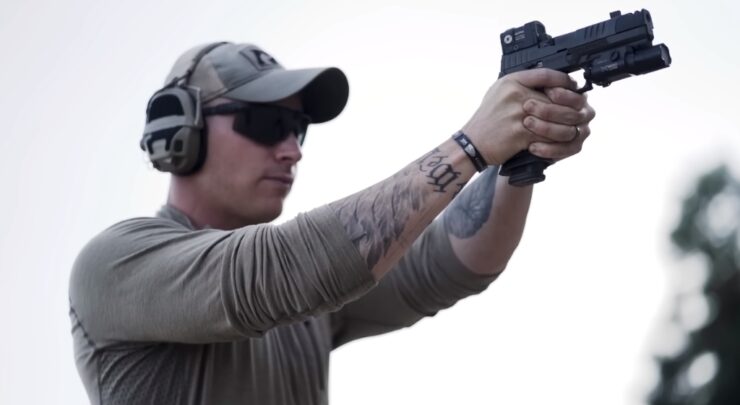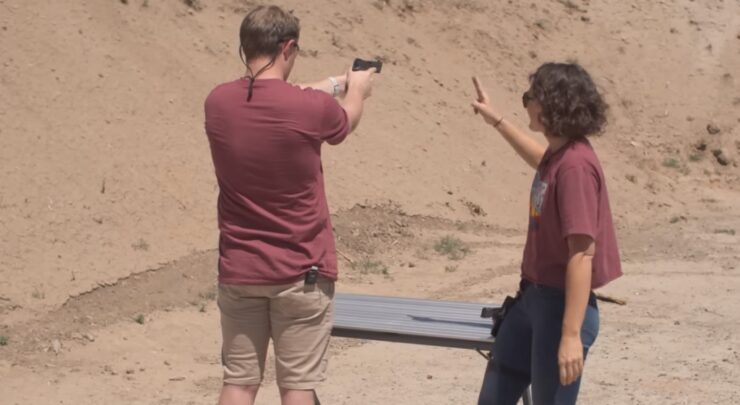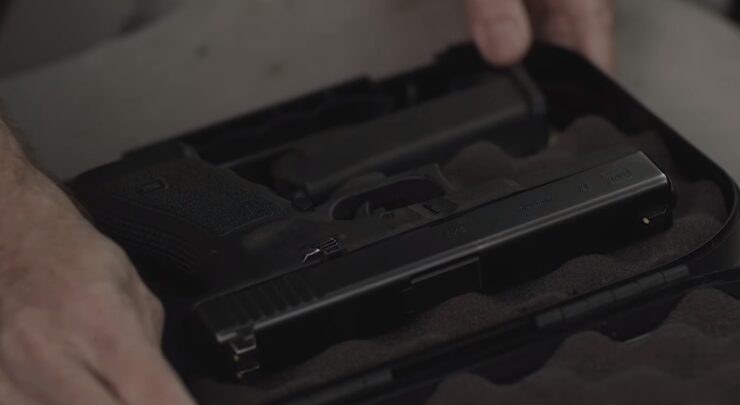In the realm of gun ownership, the term “gender gap” introduces a nuanced exploration into the distinct patterns of firearm possession between men and women. Understanding this gap is pivotal in unraveling the complex interplay of societal norms and individual choices.
Examining the historical landscape of gun ownership in the US provides valuable context, highlighting the evolving nature of gender roles and their impact on firearm engagement.
As society places an increasing focus on studying gender differences, particularly in traditionally male-dominated domains, such as firearms, it becomes essential to navigate the intricate relationship between gender, culture, and individual motivations.
This article by Arms Directory, the online hub for gun enthusiasts and professionals alike, delves into this multifaceted landscape, aiming to shed light on the relevance and implications of the gender gap in gun ownership.
Contents
Men and Guns

Gun ownership among men stands as a complex tapestry woven by diverse factors, ranging from societal expectations to personal interests. Examining data and studies on this subject unveils intriguing patterns. Stereotypes and cultural associations have long intertwined masculinity with firearms, shaping societal perceptions.
The allure of hunting, engaging in sport shooting, and a sense of self-defense contribute significantly to men’s ownership preferences.
These factors play pivotal roles in understanding the dynamics of male gun ownership in the US. According to Statista, US men are almost three times more likely to personally own a gun compared to women. This exploration seeks to dismantle preconceptions, offering a nuanced view of how men’s relationships with guns are molded by a myriad of influences.
Women and Guns

Gun ownership among women, once a less-explored terrain, is now gaining prominence as societal dynamics shift. Understanding the patterns that govern women’s relationship with firearms involves delving into motivations and concerns.
Contrary to traditional expectations, more women are embracing gun ownership, motivated by factors such as self-defense, personal protection, and empowerment.
The idea of self-reliance and the desire to safeguard one’s well-being have become driving forces behind women’s decisions to own guns. In exploring this realm, it’s essential to unravel the multifaceted reasons that lead women to choose gun ownership, acknowledging the evolving landscape that shapes their perspectives.
Gender Differences in Attitudes Toward Gun Control
When it comes to attitudes toward gun control policies, examining the disparities between men and women reveals intriguing insights. While both genders share common ground on some issues, variations emerge in their views on specific regulations. Analyzing data highlights distinctions in support for measures such as background checks and assault weapons bans.
Women, statistically, tend to express stronger support for stricter gun control measures, emphasizing the importance of thorough background checks and advocating for limitations on certain firearms.
Understanding these gender-based differences sheds light on the nuanced landscape of opinions surrounding gun control and contributes to the broader conversation about balancing individual rights with public safety concerns.
Closing the Gender Gap

males have been far more likely than women to report they are gun owners since Gallup started tracking Americans’ personal gun ownership annually in 2007. However, aggregated data from biennial surveys indicates that women have been more variable in their gun ownership than males.
Over the past 15 years, women’s gun ownership has increased from the low teens to over 20%, while men’s gun ownership has stayed in the low to mid-40s over that time.
The most recent findings, from 2021-2022, show a 21-percentage-point gender gap in gun ownership, with about twice as many men (43%) as women (22%) saying they personally own a gun.
Since 2001, Gallup has tracked Americans’ preferences for regulations pertaining to the sale of firearms through its annual October Crime surveys. With one exception (50% in 2011), the majority of women have stated throughout that time that they would prefer tougher gun controls.
But aside from a reading of 56% in 2019, no more than 51% of males have supported tougher rules. According to recent results from a poll conducted between October 3–20, 2022, 51% of men and 62% of women believe that gun rules should be strengthened.
To address the gender gap in gun ownership and foster a more inclusive and informed conversation, it’s crucial to consider various approaches. First, education plays a pivotal role. Implementing comprehensive firearms safety and awareness programs that are accessible to everyone, irrespective of gender, can demystify misconceptions and promote responsible gun ownership.
Additionally, creating more welcoming environments within shooting and gun communities can encourage women to explore these interests without feeling alienated. It’s essential to challenge stereotypes and showcase diverse role models in the firearms world. Moreover, addressing concerns related to safety, self-defense, and personal empowerment can help bridge the gap.
By fostering open dialogue, breaking down barriers, and actively involving women in discussions and initiatives related to firearms, we can work towards a more equitable and informed landscape.
This multifaceted approach aims to create an inclusive space where individuals of all genders can engage responsibly with firearms while addressing the existing disparities in gun ownership and violence.
Final Thoughts
In conclusion, the gender gap in gun ownership reflects complex patterns influenced by societal expectations and individual motivations. While men often associate guns with traditional notions of masculinity, women increasingly embrace firearm ownership for self-defense and empowerment.
Understanding and challenging stereotypes is crucial for fostering inclusivity. Differing attitudes towards gun control also highlight the need for nuanced policy discussions. By promoting education, creating welcoming spaces, and addressing safety concerns, we can work towards closing the gender gap in gun ownership.
Embracing diversity within the firearms community ensures a more informed and equitable approach to responsible gun ownership.


